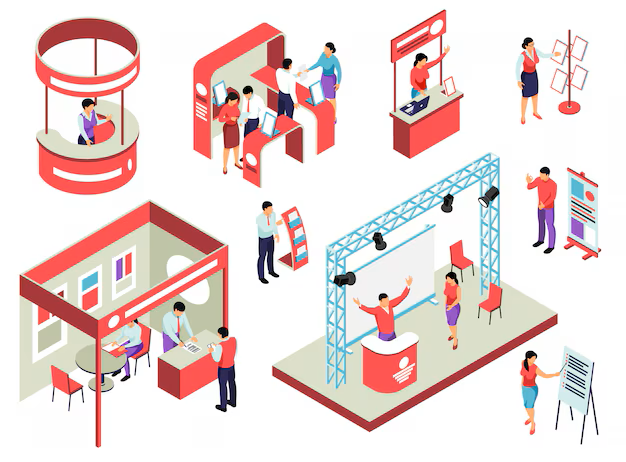
Any showrunner or event owner will tell you that a successful event is measured by the number of meaningful interactions between visitors and exhibitors. A tailored database of high-value clients and prospects can be the key to ensuring your exhibitors and stakeholders get the maximum value from your event. Here’s how to define, build, and maintain such a database, with a special focus on the advantages of a bespoke, hand-crafted data approach.
Why a VIP Database Matters
A VIP database is more than just a list of names—it’s a strategic asset that underpins the success of your event. By identifying and nurturing relationships with high-value clients and prospects, you can:
- Deliver Value to Exhibitors: Exhibitors participate in events to access relevant and influential audiences. A targeted VIP segment ensures they meet decision-makers and high-spending customers.
- Enhance Event Prestige: A well-defined VIP segment elevates your event’s reputation, making it a “must-attend” for industry leaders.
- Drive ROI: Focused outreach to a high-value audience guarantees better results, from sponsorship deals to post-event sales.
Step 1: Define Your VIP Segment
The first step in building a VIP database is to define what “VIP” means for your event and exhibitors.
- Understand Your Exhibitors’ Goals: Engage with your exhibitors to identify the types of clients they value most. Are they seeking C-suite executives, procurement specialists, or niche influencers? Tailor your VIP segment to align with these profiles.
- Set Clear Criteria: Define eligibility based on factors such as industry relevance, buying power, job titles, or influence within the sector.
- Prioritise Quality Over Quantity: A smaller, well-targeted VIP list will deliver more value than a larger, unfocused one.
Step 2: Build a Bespoke VIP Database
Creating a bespoke VIP database requires a thoughtful and meticulous approach. Here are some best practices:
1. Craft Your Data to fit your event
Instead of relying solely on automated tools or off-the-shelf lists, invest in manually curated data. Here’s why bespoke data stands out:
- Relevance: Tailored databases are built to match your event’s specific themes and exhibitors’ needs, ensuring you reach the right audience.
- Accuracy: Manually vetting each entry reduces the risk of outdated or irrelevant contacts.
- Personalisation: A bespoke list allows for personalised communication, increasing the likelihood of engagement.
2. Use Multiple Sources
Draw from a variety of sources to ensure a comprehensive database:
- Industry Networks: Leverage associations, memberships, and forums.
- Social Media Platforms: Use LinkedIn and other professional networks to identify key individuals.
- Past Event Data: Review attendee lists from previous events to spot recurring VIPs.
- Exhibitor Recommendations: Collaborate with exhibitors to identify clients or prospects they wish to invite.
3. Prioritise Data Enrichment
A bespoke database should include detailed information about each VIP:
- Name, role, and organisation
- Buying history or preferences
- Areas of interest relevant to your event
- Communication preferences
Step 3: Maintain and Grow Your Database
A VIP database is not a static entity; it requires ongoing management and refinement. Here’s how to ensure it remains a valuable resource:
- Regular Updates: Verify and update contact details and roles to maintain accuracy.
- Feedback Loops: Post-event, gather insights from exhibitors and attendees to refine your VIP criteria.
- Exclusive Engagement: Keep VIPs engaged year-round with tailored content, invitations, and offers that reinforce your event’s value.
The Benefits of a Hand-Crafted VIP Database
Opting for a bespoke data build offers several advantages over generic or mass-market approaches:
- Customised Relevance: A hand-crafted database is uniquely tailored to your event’s objectives and exhibitor needs, ensuring every contact is valuable.
- Stronger Connections: Personalised outreach fosters deeper relationships, building loyalty among your VIPs.
- Enhanced ROI: A precise, high-quality database drives better event outcomes, from increased attendance to stronger exhibitor satisfaction.
Conclusion
Creating a VIP database isn’t just about compiling names; it’s about building a strategic asset that enhances the value of your event. By defining your VIP segment, crafting a bespoke database by hand, and maintaining it with care, you can create high-quality interactions and long-term loyalty. In turn, your exhibitors will see your event as an essential part of their business strategy, ensuring mutual success for all stakeholders involved.
Embrace the power of precision and relevance, and watch your event’s reputation soar. Discover how we help drive successful events.